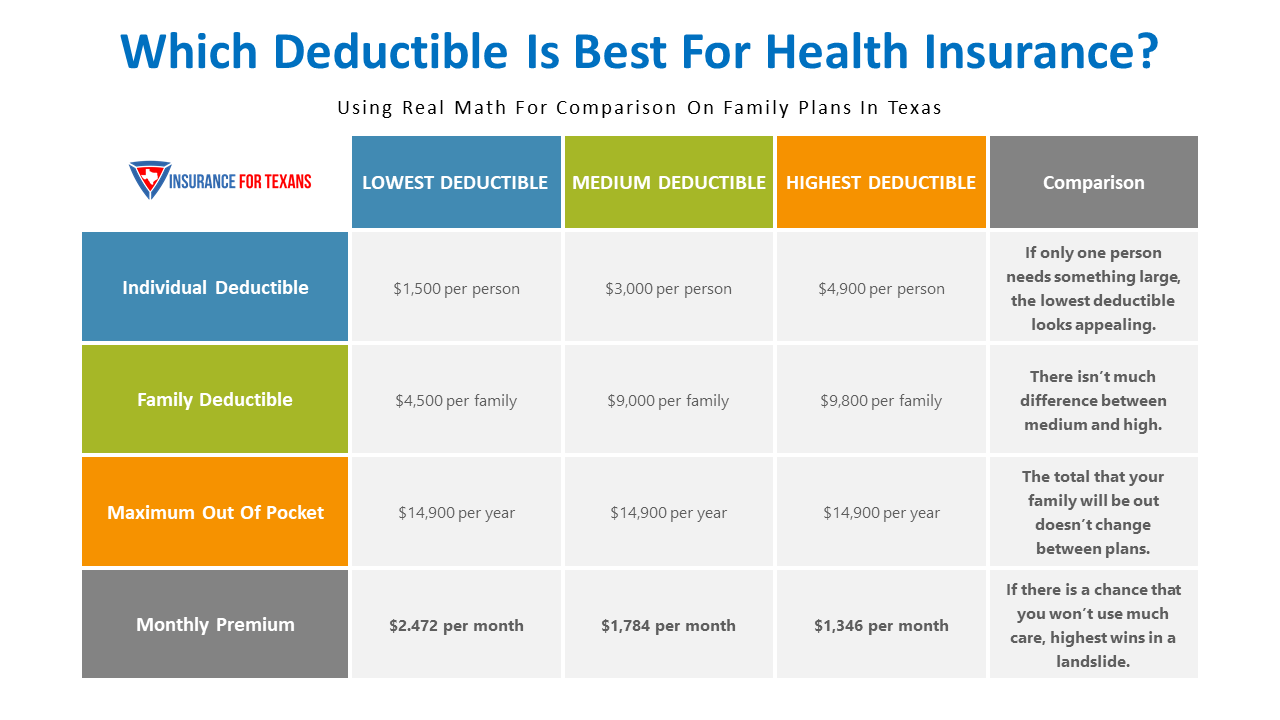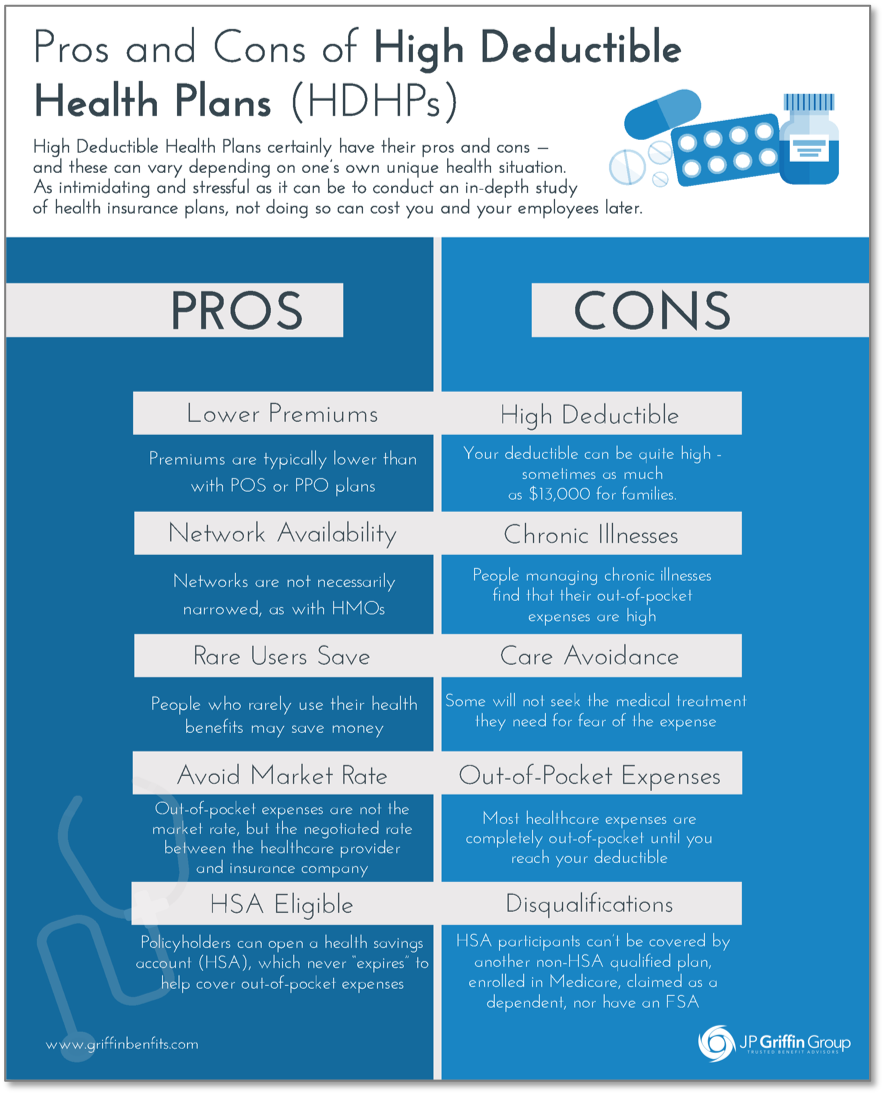Understanding HDHPs: The Basics & What You Need To Know
Are you seeking a way to potentially lower your monthly health insurance costs? Embracing a high-deductible health plan (HDHP) could be the key, offering the allure of reduced monthly premiums in exchange for a different approach to managing your healthcare expenses. The landscape of health insurance can often feel like a complex maze, with its various plans, premiums, and deductibles. Making informed decisions is crucial to ensure you receive the coverage that best suits your individual needs and financial situation.
One of the primary considerations when choosing a health plan is the trade-off between monthly premiums and the deductible. Lower monthly premiums are often a significant draw, enticing individuals to explore options like HDHPs. However, it's essential to understand that this typically comes with a higher deductible. A deductible in health insurance is, in essence, the amount a policyholder must pay out of pocket for covered healthcare services before the insurer begins to share the cost.
Many individuals are drawn to the idea of paying a lower premium each month for their health insurance. This financial allure is a primary reason why so many people turn to HDHPs. HDHPs are designed to provide a balance between affordability and coverage, often combining lower premiums with the potential for long-term cost savings, particularly for those who anticipate relatively low healthcare needs.
- Lyna Perez Leak Scandal What You Need To Know Amp Updates
- Lyna Perez Leak Scandal The Truth Aftermath Details Inside
So, what exactly is a High Deductible Health Plan, and how does it work? HDHPs, as the name suggests, have a higher deductible than traditional health plans. This means that you, as the policyholder, will pay out of pocket for your medical expenses until you reach a certain amount. This threshold is the deductible. Once you meet the deductible, your insurance coverage kicks in, and the insurer begins to pay its share of your healthcare costs.
A high-deductible health plan (HDHP) is a health plan product that combines a health savings account (HSA) or a health reimbursement arrangement (HRA) with traditional medical coverage. This combination offers a unique approach to healthcare finance, allowing individuals to manage their healthcare costs more actively while still retaining the essential coverage provided by insurance.
The concept of a deductible is central to understanding how HDHPs work. The deductible is the amount you pay out of pocket for healthcare services before your insurance starts covering costs. It represents the initial financial responsibility you bear before your insurance plan begins to share the costs of your medical care. Understanding the deductible is crucial for budgeting and planning your healthcare expenses.
- Andie Elle Onlyfans Leaks Free Content Find It Here
- Marius Borg Hiby Age Birthday Bio Facts Google Discover
HDHPs are frequently paired with health savings accounts (HSAs), which offer significant tax advantages. HSAs allow individuals to set aside pre-tax dollars to pay for qualified medical expenses. The funds in an HSA can grow tax-free, and if used for eligible healthcare expenses, they are also tax-free. This combination of an HDHP and an HSA provides a powerful tool for managing healthcare costs effectively.
HSAs (Health Savings Accounts) are designed to complement HDHPs, providing a tax-advantaged way to save and pay for healthcare expenses. HSAs are available to individuals covered by an HDHP. Funds contributed to an HSA are tax-deductible, grow tax-free, and can be used tax-free for qualified medical expenses. This arrangement allows individuals to save money on their healthcare costs and potentially accumulate funds for future medical needs.
One of the key benefits of HDHPs, besides the lower monthly premiums, is the potential for tax savings through an HSA. The interplay between an HDHP and a health savings account (HSA) can significantly influence overall healthcare costs. The HSA acts as a financial tool that allows individuals to save for future healthcare expenses in a tax-advantaged manner.
The choice between an HDHP and a traditional health plan depends on individual needs and preferences. The interplay between HDHP and PPO deductibles significantly affects financial responsibility. For example, if the HDHP is primary, its deductible must be met before benefits are paid. If the PPO is primary, it may cover initial expenses, delaying the need to meet the HDHP deductible.
Navigating the complexities of healthcare can be challenging, but understanding the principles of HDHPs can empower you to make informed decisions. Enrolling in an HDHP, potentially combined with a health savings account (HSA), provides a path toward greater control over your healthcare expenses. By carefully evaluating your healthcare needs, financial situation, and risk tolerance, you can determine if an HDHP is the right choice for you.
One way to manage your health care expenses is by enrolling in a high deductible health plan (HDHP) in combination with opening a health savings account (HSA). This strategy provides a unique approach to health care finance, allowing individuals to manage their healthcare costs more actively.
Learn how HDHPs (high deductible health plans) & HSAs (health savings accounts) can help reduce your overall health care costs. The potential for savings is a significant advantage of this approach.
Save more on health care by carefully considering the interplay of premiums, deductibles, and HSAs. This will enable you to make informed decisions about your health insurance.
High deductible health plan (HDHP) is a plan with a higher deductible than a traditional insurance plan. The monthly premium is usually lower, but you pay more health care costs yourself before the insurance company starts to pay its share (also called your deductible). This trade-off is a central consideration when choosing this type of plan.
With HDHPs, youll pay less each month, but more when you get care compared to other health plans. Understanding this distinction is critical for effectively managing your healthcare costs.
Who should enroll in a high deductible health plan? HDHPs are particularly well-suited for individuals and families who are generally healthy and have predictable healthcare needs. These plans can be advantageous for those who rarely visit the doctor, as they can take advantage of the lower monthly premiums. The ability to save money in an HSA can also be a significant benefit.
For example, if you are generally healthy and anticipate few medical expenses, an HDHP might be a cost-effective choice. If you have a chronic condition or expect to need frequent medical care, a plan with a lower deductible might be more appropriate.
The core concept of an HDHP revolves around the higher deductible. This means you pay a larger amount out of pocket for healthcare services before your insurance coverage starts. This higher deductible is often offset by lower monthly premiums. This structure can be beneficial if you don't anticipate needing extensive medical care.
Enrolling in an HDHP, and in combination with a health savings account (HSA), provides a unique approach to health care finance, allowing individuals to manage their healthcare costs more actively.
The interplay between HDHP and PPO deductibles significantly affects financial responsibility. The specifics of your plan will determine how costs are shared. For example, if the HDHP is primary, its deductible must be met before benefits are paid. If the PPO is primary, it may cover initial expenses, delaying the need to meet the HDHP deductible.
Many people opt for HDHPs because the monthly premium is usually lower, offering a degree of predictability in their monthly expenses. However, the higher deductible means that you'll be responsible for a larger portion of your healthcare costs before your insurance coverage kicks in. This trade-off between lower premiums and a higher deductible is the defining characteristic of HDHPs.



Detail Author:
- Name : Gage Prosacco IV
- Username : shea.wyman
- Email : lupe57@gmail.com
- Birthdate : 1986-03-17
- Address : 3114 Anissa Skyway Suite 841 Walterhaven, DC 04809-9876
- Phone : +1-539-299-9183
- Company : Dach-Conroy
- Job : Reporters OR Correspondent
- Bio : Aliquid culpa nesciunt nesciunt quia sit reiciendis. Officia qui est non. Corporis facilis error velit odit ut quaerat.
Socials
linkedin:
- url : https://linkedin.com/in/yesenia3989
- username : yesenia3989
- bio : Animi dolorum ex molestias.
- followers : 589
- following : 2236
instagram:
- url : https://instagram.com/jones1972
- username : jones1972
- bio : Voluptates vitae aperiam occaecati atque. Corporis eligendi qui qui. Illum vero distinctio nulla.
- followers : 366
- following : 254
twitter:
- url : https://twitter.com/yesenia_xx
- username : yesenia_xx
- bio : Deserunt dolorem molestiae veniam esse beatae. Consequatur voluptas qui voluptate minus repudiandae fugit.
- followers : 5054
- following : 144
facebook:
- url : https://facebook.com/yeseniajones
- username : yeseniajones
- bio : Tenetur hic molestiae et.
- followers : 1454
- following : 1890